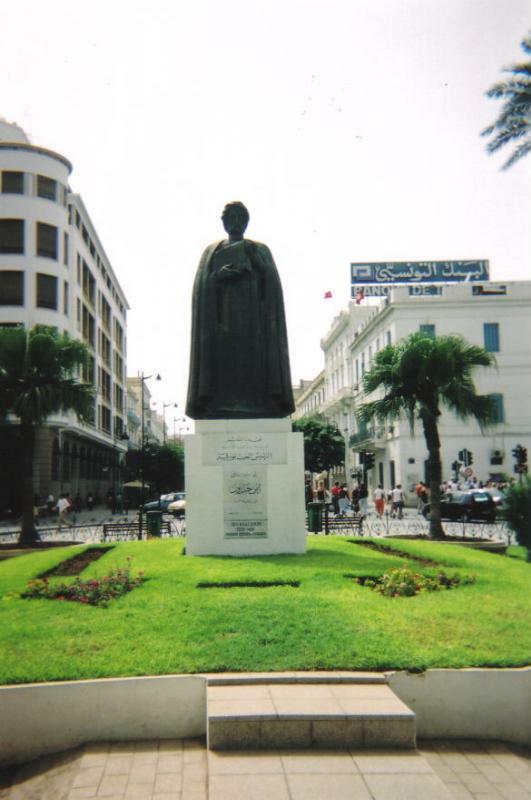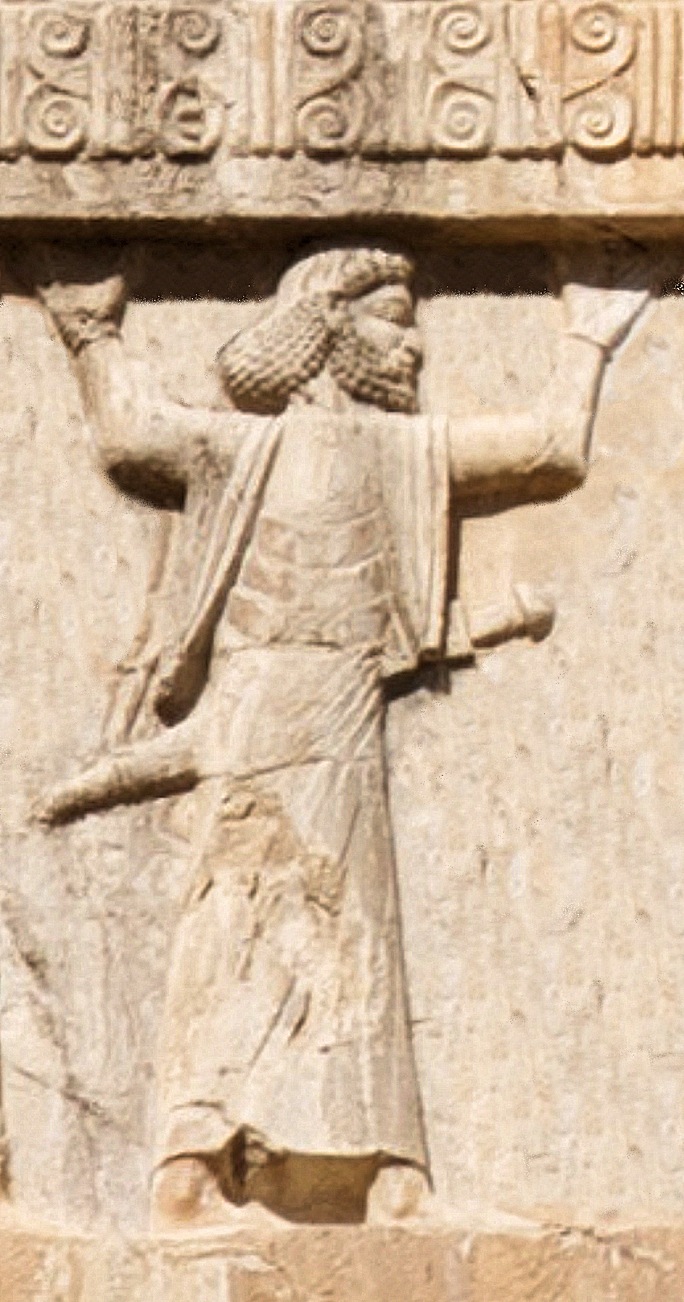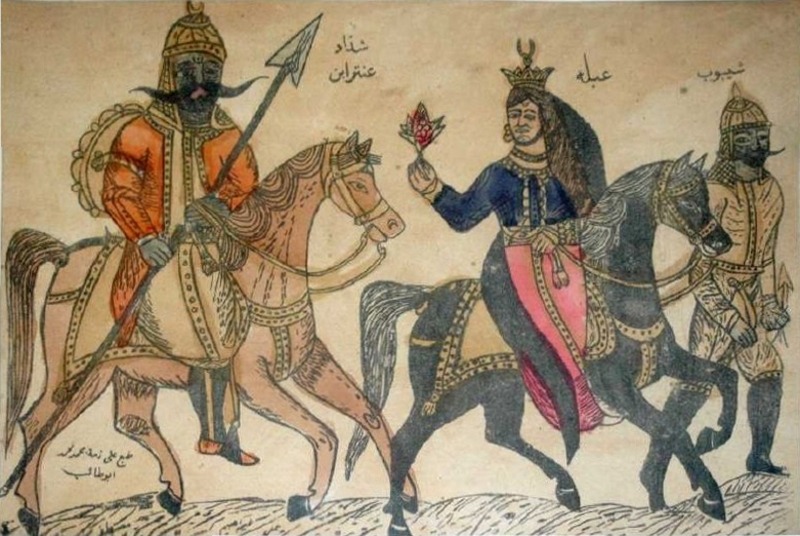|
Tim Mackintosh-Smith
Tim Mackintosh-Smith (born 17 July 1961) is a British, Yemen-based, Oxford-educated Arabist, writer, traveller and lecturer. He has written numerous books on the Middle East, won several awards and has presented a major BBC television series. Education Mackintosh-Smith was educated at Clifton College, a boarding independent school for boys in the suburb of Clifton in the port city of Bristol in South West England, from 1971 to 1978, followed by a musical scholarship to the University of Oxford, where he read Classical Arabic. Life and career From 1982 to 2019, Mackintosh-Smith lived in an ancient tower house off the "Market of the Cows" in the old city of San'a, Yemen. As a consequence of the civil war in Yemen, he had to leave this home and temporarily relocate to Malaysia. He is the author of the travel books ''Yemen: Travels in Dictionaryland'' (1997) and ''Yemen: The Unknown Arabia'' (2000). Further, he is one of the foremost scholars of the Moroccan medieval scholar Ib ... [...More Info...] [...Related Items...] OR: [Wikipedia] [Google] [Baidu] |
Yemen
Yemen (; ar, ٱلْيَمَن, al-Yaman), officially the Republic of Yemen,, ) is a country in Western Asia. It is situated on the southern end of the Arabian Peninsula, and borders Saudi Arabia to the Saudi Arabia–Yemen border, north and Oman to the Oman–Yemen border, northeast and shares maritime borders with Eritrea, Djibouti, and Somalia. Yemen is the second-largest Arabs, Arab sovereign state in the peninsula, occupying , with a coastline stretching about . Its constitutionally stated Capital city, capital, and largest city, is Sanaa. As of 2021, Yemen has an estimated population of some 30.4 million. In ancient times, Yemen was the home of the Sabaeans, a trading state that included parts of modern-day Ethiopia and Eritrea. Later in 275 AD, the Himyarite Kingdom was influenced by Judaism. Christianity arrived in the fourth century. Islam spread quickly in the seventh century and Yemenite troops were crucial in the early Islamic conquests. Several Dynasty, dynasties ... [...More Info...] [...Related Items...] OR: [Wikipedia] [Google] [Baidu] |
Muqaddimah
The ''Muqaddimah'', also known as the ''Muqaddimah of Ibn Khaldun'' ( ar, مقدّمة ابن خلدون) or ''Ibn Khaldun's Prolegomena'' ( grc, Προλεγόμενα), is a book written by the Arab historian Ibn Khaldun in 1377 which records an early view of universal history. Some modern thinkers view it as the first work dealing with the social sciences of sociology, demography,H. Mowlana (2001). "Information in the Arab World", ''Cooperation South Journal'' 1. and cultural history.Mohamad Abdalla (Summer 2007. "Ibn Khaldun on the Fate of Islamic Science after the 11th Century", ''Islam & Science'' 5 (1), p. 61-70. The ''Muqaddimah'' also deals with Islamic theology, historiography, the philosophy of history, economics,I. M. Oweiss (1988), "Ibn Khaldun, the Father of Economics", ''Arab Civilization: Challenges and Responses'', New York University Press, .Jean David C. Boulakia (1971), "Ibn Khaldun: A Fourteenth-Century Economist", ''The Journal of Political Economy'' 79 ... [...More Info...] [...Related Items...] OR: [Wikipedia] [Google] [Baidu] |
Arabic
Arabic (, ' ; , ' or ) is a Semitic language spoken primarily across the Arab world.Semitic languages: an international handbook / edited by Stefan Weninger; in collaboration with Geoffrey Khan, Michael P. Streck, Janet C. E.Watson; Walter de Gruyter GmbH & Co. KG, Berlin/Boston, 2011. Having emerged in the 1st century, it is named after the Arab people; the term "Arab" was initially used to describe those living in the Arabian Peninsula, as perceived by geographers from ancient Greece. Since the 7th century, Arabic has been characterized by diglossia, with an opposition between a standard prestige language—i.e., Literary Arabic: Modern Standard Arabic (MSA) or Classical Arabic—and diverse vernacular varieties, which serve as mother tongues. Colloquial dialects vary significantly from MSA, impeding mutual intelligibility. MSA is only acquired through formal education and is not spoken natively. It is the language of literature, official documents, and formal writ ... [...More Info...] [...Related Items...] OR: [Wikipedia] [Google] [Baidu] |
Muhammad
Muhammad ( ar, مُحَمَّد; 570 – 8 June 632 CE) was an Arab religious, social, and political leader and the founder of Islam. According to Islamic doctrine, he was a prophet divinely inspired to preach and confirm the monotheistic teachings of Adam, Abraham, Moses, Jesus, and other prophets. He is believed to be the Seal of the Prophets within Islam. Muhammad united Arabia into a single Muslim polity, with the Quran as well as his teachings and practices forming the basis of Islamic religious belief. Muhammad was born approximately 570CE in Mecca. He was the son of Abdullah ibn Abd al-Muttalib and Amina bint Wahb. His father Abdullah was the son of Quraysh tribal leader Abd al-Muttalib ibn Hashim, and he died a few months before Muhammad's birth. His mother Amina died when he was six, leaving Muhammad an orphan. He was raised under the care of his grandfather, Abd al-Muttalib, and paternal uncle, Abu Talib. In later years, he would periodically ... [...More Info...] [...Related Items...] OR: [Wikipedia] [Google] [Baidu] |
History Of The Arabs
The recorded history of the Arabs begins in the mid-ninth century BC, which is the earliest known attestation of the Old Arabic language. The Arabs appear to have been under the vassalage of the Neo-Babylonian Empire; they went from the Arabian Peninsula to Mauritania. Tradition holds that Arabs descend from Ishmael, the son of Abraham. * * The Syrian Desert is the home of the first attested "Arab" groups, as well other Arab groups that spread in the land and existed for millennia. Before the expansion of the Rashidun Caliphate (632–661), "Arab" referred to any of the largely nomadic or settled Arabic tribes from the Arabian Peninsula, Syrian Desert, North and Lower Mesopotamia. Today, "Arab" refers to a variety of large numbers of people whose native regions form the Arab world due to the spread of Arabs and the Arabic language throughout the region during the early Muslim conquests of the 7th and 8th centuries. The Arabs forged the Rashidun (632–661), Umayyad (66 ... [...More Info...] [...Related Items...] OR: [Wikipedia] [Google] [Baidu] |
Pre-Islamic Arabia
Pre-Islamic Arabia ( ar, شبه الجزيرة العربية قبل الإسلام) refers to the Arabian Peninsula before the emergence of Islam in 610 CE. Some of the settled communities developed into distinctive civilizations. Information about these communities is limited and has been pieced together from archaeological evidence, accounts written outside of Arabia, and Arab oral traditions which were later recorded by Islamic historians. Among the most prominent civilizations were the Thamud civilization, which arose around 3000 BCE and lasted to around 300 CE, and the earliest Semitic civilization in the eastern part was Dilmun, which arose around the end of the fourth millennium and lasted to around 600 CE. Additionally, from the second half of the second millennium BCE,Kenneth A. Kitchen The World of "Ancient Arabia" Series. Documentation for Ancient Arabia. Part I. Chronological Framework and Historical Sources p.110 Southern Arabia was the home to a number of king ... [...More Info...] [...Related Items...] OR: [Wikipedia] [Google] [Baidu] |
A 3,000-Year History Of Peoples, Tribes And Empires'' (2019)
A, or a, is the first letter and the first vowel of the Latin alphabet, used in the modern English alphabet, the alphabets of other western European languages and others worldwide. Its name in English is ''a'' (pronounced ), plural ''aes''. It is similar in shape to the Ancient Greek letter alpha, from which it derives. The uppercase version consists of the two slanting sides of a triangle, crossed in the middle by a horizontal bar. The lowercase version can be written in two forms: the double-storey a and single-storey ɑ. The latter is commonly used in handwriting and fonts based on it, especially fonts intended to be read by children, and is also found in italic type. In English grammar, " a", and its variant " an", are indefinite articles. History The earliest certain ancestor of "A" is aleph (also written 'aleph), the first letter of the Phoenician alphabet, which consisted entirely of consonants (for that reason, it is also called an abjad to distinguish it f ... [...More Info...] [...Related Items...] OR: [Wikipedia] [Google] [Baidu] |
Arab Culture
Arab culture is the culture of the Arabs, from the Atlantic Ocean in the west to the Arabian Sea in the east, and from the Mediterranean Sea in the north to the Horn of Africa and the Indian Ocean in the southeast. The various religions the Arabs have adopted throughout their history and the various empires and kingdoms that have ruled and took lead of the Arabian civilization have contributed to the ethnogenesis and formation of modern Arab culture.Language, literature, gastronomy, art, architecture, music, spirituality, philosophy and mysticism are all part of the cultural heritage of the Arabs. The Arab world is sometimes divided into separate regions depending on different cultures, dialects and traditions including: • The Levant: Lebanon, Syria, Palestine and Jordan. • Egypt • Mesopotamia (Iraq). • The Arabian Peninsula: Kuwait, Bahrain, Qatar, Saudi Arabia, Oman, Yemen and the United Arab Emirates. • Sudan • The Maghreb: Libya, Tunisia, Algeria, ... [...More Info...] [...Related Items...] OR: [Wikipedia] [Google] [Baidu] |
Arabs
The Arabs (singular: Arab; singular ar, عَرَبِيٌّ, DIN 31635: , , plural ar, عَرَب, DIN 31635: , Arabic pronunciation: ), also known as the Arab people, are an ethnic group mainly inhabiting the Arab world in Western Asia, North Africa, the Horn of Africa, and the western Indian Ocean islands (including the Comoros). An Arab diaspora is also present around the world in significant numbers, most notably in the Americas, Western Europe, Turkey, Indonesia, and Iran. In modern usage, the term "Arab" tends to refer to those who both carry that ethnic identity and speak Arabic as their native language. This contrasts with the narrower traditional definition, which refers to the descendants of the tribes of Arabia. The religion of Islam was developed in Arabia, and Classical Arabic serves as the language of Islamic literature. 93 percent of Arabs are Muslims (the remainder consisted mostly of Arab Christians), while Arab Muslims are only 20 percent of th ... [...More Info...] [...Related Items...] OR: [Wikipedia] [Google] [Baidu] |
Daily Telegraph
Daily or The Daily may refer to: Journalism * Daily newspaper, newspaper issued on five to seven day of most weeks * ''The Daily'' (podcast), a podcast by ''The New York Times'' * ''The Daily'' (News Corporation), a defunct US-based iPad newspaper from News Corporation * '' The Daily of the University of Washington'', a student newspaper using ''The Daily'' as its standardhead Places * Daily, North Dakota, United States * Daily Township, Dixon County, Nebraska, United States People * Bill Daily (1927–2018), American actor * Elizabeth Daily (born 1961), American voice actress * Joseph E. Daily (1888–1965), American jurist * Thomas Vose Daily (1927–2017), American Roman Catholic bishop Other usages * Iveco Daily, a large van produced by Iveco * Dailies, unedited footage in film See also * Dailey, surname * Daley (other) * Daly (other) Daly or DALY may refer to: Places Australia * County of Daly, a cadastral division in South Australia * ... [...More Info...] [...Related Items...] OR: [Wikipedia] [Google] [Baidu] |
Thomas Cook Travel Book Award
The Thomas Cook Travel Book Award originated as an initiative of Thomas Cook AG in 1980, with the aim of encouraging and rewarding the art of literary travel writing. The awards stopped in 2005 (2004 being the last year an award was given). As of 2008, the only other travel book award in Britain is the Dolman Best Travel Book Award, begun in 2006. Winners Source: *2004, Richard Grant, ''Ghost Riders: Travels with American Nomads'' *2003, Jenny Diski, ''Stranger on a Train: Daydreaming and Smoking around America With Interruptions'' *2002, Ma Jian, ''Red Dust: A Path Through China'' *2001, Stanley Stewart, ''In the Empire of Genghis Khan: An Amazing Odyssey Through the Lands of the Most Feared Conquerors in History'' *2000, Jason Elliot, '' An Unexpected Light: Travels in Afghanistan'' *1999, Philip Marsden, ''The Spirit-Wrestlers: A Russian Journey'' *1998, Tim Mackintosh-Smith, ''Yemen:Travels in Dictionary Land'' *1997, Nicholas Crane, ''Clear Waters Rising: A Mountain Wa ... [...More Info...] [...Related Items...] OR: [Wikipedia] [Google] [Baidu] |
Documentary Film
A documentary film or documentary is a non-fictional motion-picture intended to "document reality, primarily for the purposes of instruction, education or maintaining a historical record". Bill Nichols has characterized the documentary in terms of "a filmmaking practice, a cinematic tradition, and mode of audience reception hat remainsa practice without clear boundaries". Early documentary films, originally called "actuality films", lasted one minute or less. Over time, documentaries have evolved to become longer in length, and to include more categories. Some examples are educational, observational and docufiction. Documentaries are very informative, and are often used within schools as a resource to teach various principles. Documentary filmmakers have a responsibility to be truthful to their vision of the world without intentionally misrepresenting a topic. Social-media platforms (such as YouTube) have provided an avenue for the growth of the documentary- film gen ... [...More Info...] [...Related Items...] OR: [Wikipedia] [Google] [Baidu] |





